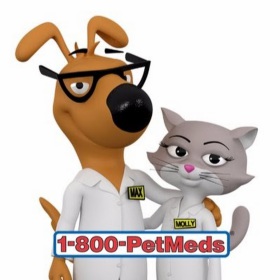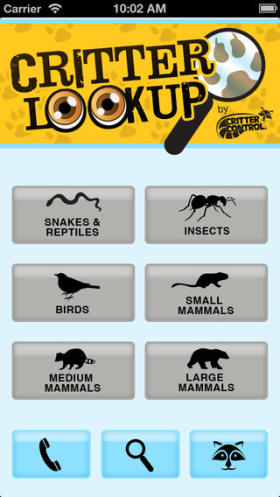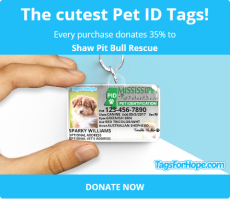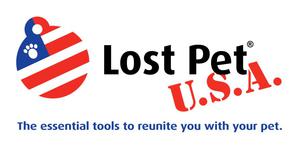Intestinal Upsets
Grumbling guts, vomiting, and diarrhea are common problems in dogs that have a variety of potential causes ranging from dietary indiscretion to infection to chronic disease, parasite infestation
or poison. It can be a simple as an abrupt change in diet or as complex as metabolic disease.
Occasional bouts of upset may be cured by waiting or by use of an over-the-counter medicine such as Imodium or Pepto Bismol, but cases that last more than a day or two or that escalate in severity
should be seen by a veterinarian as soon as possible. Persistent vomiting and diarrhea can lead to dehydration and other complications, and delay in treatment can impede a return to good health or
hinder treatment of a serious condition.
Diarrhea
Unfortunately, diarrhea is a familiar symptom in dogs, and the cause is often undiagnosed because the episodes have sudden onset, are easily cured, and occur infrequently.
A symptom of intestinal distress, diarrhea is a change in the frequency and consistency of bowel movements. It can be mild or severe, bloody or not, smelly or not particularly. A dog with diarrhea
can also have flatulence, grumbling guts (borborygmus, a wonderfully descriptive term for intestinal bubbling caused by gas), abdominal distention and discomfort, and bad breath. Vomiting may or may
not be present.
Some dogs have periodic bouts with diarrhea of undetermined origin, but as long as the symptoms respond well to minimal treatment, no testing is done to determine the origin. Diagnosis of persistent
or longstanding diarrhea is critical.
Diarrhea of undetermined origin can often be treated by withholding food for 24 hours to rest the intestines and giving an over-the-counter preparation if advised by a veterinarian. After the period
of food withdrawal, a diet of home-cooked diet of boiled hamburger, cottage cheese, or tofu with boiled rice (plain ? no flavoring) or tapioca. However, if Ranger is also vomiting or becomes
dehydrated, a trip to the clinic is in order.
Diarrhea Causes
Intestinal upset and diarrhea can be caused by stress, bacteria, viruses, parasites, poor digestion, dietary changes, or ingestion of garbage or an indigestible object such as a toy, stick, food
wrapper, dirty rag, or other delectable.
Bacterial diseases include Campylobacter jejuni, Salmonella varieties, and Escherichia coli, organisms that may be present without causing problems until Rocky is stressed by underlying disease or
infestations or immune system weakness. C. jejuni and Salmonella can infect humans as well, so care must be taken to keep children away from sick dogs, to clean messes carefully, and to wash
carefully after handling sick dogs.
Viral causes of diarrhea include distemper, corona, and parvovirus. Distemper and parvo generally attack puppies and young dogs. Corona is a less serious infection that also strikes younger dogs and
may accompany distemper disease. Vaccinations are available to prevent all three, although many veterinarians do not recommend corona virus vaccine because the disease is less serious than distemper
and parvo.
Parasitic causes of diarrhea include Giardia, Coccidia, hookworms, and whipworms. Giardia and Coccidia are protozoa, tiny one-celled animals that can wreck havoc far beyond their miniscule size.
Coccidia infection is rare in dogs; most cases involve puppies in crowded conditions in kennels, pet stores, and animal shelters. Diagnosis is confirmed by fecal flotation to identify the eggs.
Treatment is available but prevention through cleanliness, disinfection, and heat treatment of kennel surfaces is preferable.
Giardia is more common, and the form of the protozoa that infects dogs may also infect people. Diagnosis is confirmed by fecal flotation, an examination of a sample of bowel movement to locate
protozoal cysts. There is a new vaccine against Giardia and treatment is available.
Food-related diarrhea and weight loss can occur if Rainy cannot digest her food because of an enzyme deficiency or cannot absorb nutrients from the food. Tests are necessary to diagnose these
diseases.
Inflammatory bowel diseases of unknown origin can also cause diarrhea. This complex of diseases can affect either the small or large intestine and can be managed with diet and with drugs in some
cases. However, there is no cure.
Vomiting
Diarrhea is a result of irritation of the small or large intestine; vomiting is caused by irritation of the stomach. Vomiting should not be confused with regurgitation, the spitting up of food
shortly after a meal. Vomiting involves retching ? stomach contractions that forcefully expel food from the stomach. It is preceded by restlessness, salivation, and licking the lips. Unproductive
retching is a danger signal ? the dog could have torsion, a condition in which the stomach flips and cuts off both the openings to the esophagus and the intestine and can cause death in an hour or
less. Unproductive vomiting is a cue for an immediate trip to the emergency clinic.
Most acute vomiting is not a sign of serious illness. Vomiting after meals can be caused by eating too much too fast. It can be prevented by putting rocks in the bowl so the dog has to negotiate
around them to get his meal or by feeding smaller, more frequent meals. Many dogs vomit after eating grass, but it is not clearly understood why grass produces vomiting at some times and not at
others or whether the urge to vomit causes or is produced by grass eating.
Some dogs occasionally vomit a frothy, yellow bile a few minutes after waking in the morning, but this does not affect appetite and is not an indication of disease.
Gastritis - an inflammation of the stomach - can occur if Risky has eaten a substance that irritates his stomach lining or if his stomach does not empty in a timely fashion, or is assaulted by
bacterial or viral infection. Gastritis can be acute and episodic or chronic. Acute cases can be treated in the same manner as sporadic diarrhea: withhold food for 24 hours and resume feeding small
meals that are home-prepared for a day or two. If he vomits after drinking water, ice cubes will help keep him hydrated without causing additional retching.
Chronic gastritis caused by food retention can be diagnosed by x-rays. Disease involving the stomach wall is difficult to manage, and gastritis caused by underlying cancers are usually
fatal.
Vomiting can be an indication that something serious is afoot. In addition to direct stomach involvement, vomiting may be a symptom of disease of the kidneys, liver, or pancreas, or could be induced
by drugs, electrolyte imbalance, or stress. Chronic retching, blood vomitus, projectile vomiting, and fecal vomiting are cases for the veterinarian to diagnose.
Poisoning: Inducing vomiting
Plant and product poisoning can kill or cause serious illness, so contact your veterinarian or the National Poison Control Center at (900) 680-0000, (800) 548-2423, or (888) 426-4435 for
instructions. (The National Poison Control Center at (900) 680-0000 costs $20 for the first five minutes and $2.95 for each additional minute billed to your telephone; (800) 548-2423 and (888)
426-4435 are credit- card-only numbers for $30 per case. Only Master Card, Visa, American Express, and Discover cards are accepted.)
In some cases of poisoning, vomiting should be induced to get the toxin out of the system as quickly as possible. Use hydrogen peroxide (three percent solution) or syrup of ipecac to induce vomiting
if Rascal ingests pesticides containing arsenic, carbamates, metaldehyde, or organophosphates; drugs containing aspirin or acetominophen; antifreeze; or products containing lead, phenol, strychnine,
Vitamin D3, or Warfarin. Induce vomiting in strychnine cases only if she is not having difficulty breathing.
If Monster dines on your house plants or munches his way through the garden, induce vomiting in most cases EXCEPT those involving nettles, dumb cane, philodendron, and elephant ears.
DO NOT INDUCE VOMITING if Rover eats or drinks petroleum products such as motor oil, gasoline, paint thinner, or lighter fluid or cleaning solutions such as bleach, ammonia, or
laundry detergents - instead, give one dose of one or two tablespoons of cooking oil or mineral oil and call for help as soon as possible. (Most products today carry treatment information if the
contents are ingested or inhaled. If it says -do not induce vomiting,- pay attention.)













